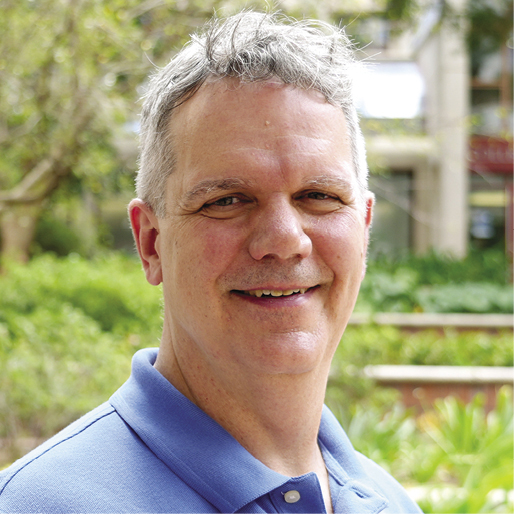Matthew Merritt, Ph.D.
Associate Professor of Biochemistry and Molecular Biology
College of Medicine
2023 Awardee
Matthew E. Merritt conducts research focusing on new methods for assessing metabolic turnover and energy metabolism. He applies these technologies to diverse functional changes that occur as a result of diseases or conditions, including heart failure, cancer and diabetes mellitus.
“My lab clearly has a strong technological bent, but the ultimate target always remains the understanding of energy metabolism,” Merritt said.
His article “Deuterated water imaging of the rat brain following metabolism of [2H7] glucose,” published in the journal Magnetic Resonance in Medicine in 2021, outlines a new approach for generating metabolic contrast using MRI that he and colleagues hope to translate to various pathophysiologies, including cancer, Alzheimer’s disease and fatty liver disease.
“Human disease is characterized by aberrant metabolism,” Merritt said. “Combining the metabolic contrast with the power of MRI for anatomical registration opens completely new ways for diagnosing and staging disease.”
Merritt, also a coordinator for the College of Medicine’s graduate program in biomedical sciences, earned his doctoral degree in physical chemistry at Washington University in St. Louis, where his dissertation focused on determining 3D structures in condensed solids, including polymers and biopolymers, using solid state NMR distance measurements. He completed post-doctoral research at the University of Washington in Seattle, where he determined structural constraints in DNA. Before joining UF faculty in 2015, Merritt served in various faculty positions for 15 years at the University of Texas Southwestern Medical Center in Dallas, Texas.
He has published 120 peer-reviewed studies and holds three patents. Merritt, who is also a member of the International Society for Magnetic Resonance in Medicine and the American Society of Biochemistry and Molecular Biology, has had his research continually funded by the National Institutes of Health since 2004.


